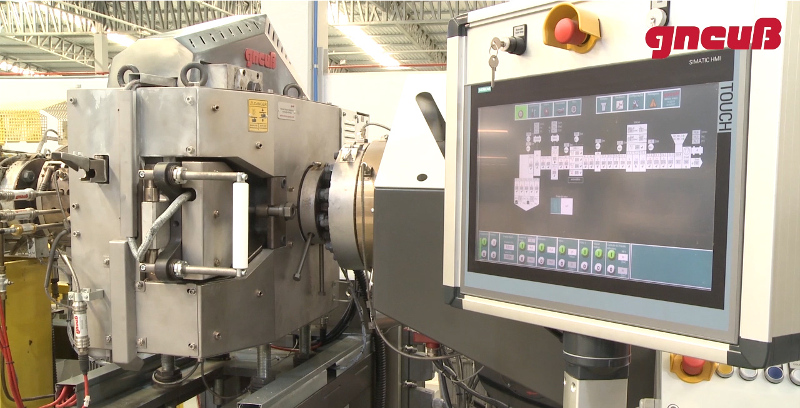Filtration systems for recycling applications
If inhouse waste and heavily contaminated post-consumer waste are added to the production process, foreign particles of various sizes and quantities are introduced into the melt flow. These have to be filtered out efficiently to ensure a consistent and high quality of the end product. At the same time, however, melt filtration must not have any disturbing influence on the production process.
Several filtration systems require a production interruption when changing screens, cause process disturbances due to pressure spikes or even generate particles if deposited material comes off during screen changes.
Company Gneuss stated that with its Rotary Technology, the conditions in the melt flow are permanently constant, i.e. the pressure drop across the screen, respectively the amount of contamination on the screen, is kept constant, so that the line can always be operated in the optimum range.
This is achieved by the rotating movement of the filter disk, with which the screens are transported through the melt channel. A control system ensures that the screen contamination remains constant. As soon as the contamination load varies, the control system reacts automatically and changes the rotational speed of the filter disk. The pressure across the system thus remains constant, the only non-constant variable in the filtration process is the rotational speed of the filter disk.
This makes the Rotary Technology a good solution for the increased use of reclaim or recycled material. Gneuss Melt Filtration Systems can be easily integrated into an existing process and are perfectly suited as a retrofit solution, the company says. The self-sufficient control system monitors the filtration process in conjunction with the production line.

